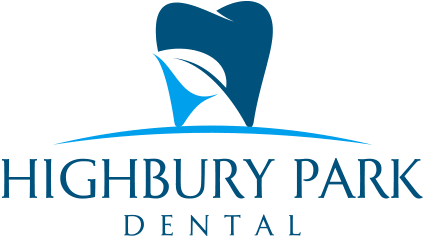How to Identify and Tackle Approaching Oral Health Issues
FREE DENTAL CARE FOR LOW-INCOME SENIORS
It’s important to maintain proper oral health. Taking care of your mouth can prevent various diseases and harmful conditions. Many oral health conditions are associated with aging. Read on to learn how to prevent these conditions and how to treat them if they’re already visible.
Read More: HOW YOUR ORAL HEALTH CHANGES AS YOU AGE
Common oral health issues experienced among older adults
Read More: THE ONTARIO SENIORS DENTAL CARE PROGRAM
Tooth decay
Years of chewing and grinding wear down tooth enamel, leading to an increased risk of tooth decay. This can lead to an increased risk of cavities as we age. Tooth decay is sometimes associated with dry mouth, which is also a common oral health concern among older patients.
Read More: THE DIFFERENT STAGES OF TOOTH DECAY AND HOW IT’S TREATED
Gum disease
Gum disease is caused by a buildup of plaque bacteria on the teeth and gums. Though it is most often caused by poor or infrequent brushing, it can be caused by brushing too hard, as doing so can recede the gums and allow bacteria to build up more easily.
In the early stages of gum disease, your gums may be swollen, red, or bleeding. In more severe cases, it can damage the gum tissues and supportive structures around the teeth, causing tooth loss.
Tooth loss and root decay
Gum disease causes receding gums, which in turn causes the roots of teeth to expose. This leads to root decay and then tooth loss when the tooth is too decayed to keep. When elders deny their oral healthcare, this vicious chain of events can occur.
Dry mouth
Older patients often experience dry mouth. Salivary gland production slows down over time, which is often the cause of this uncomfortable sensation. Dry mouth is also associated with conditions such as diabetes, stroke, and Sjögren syndrome. Dry mouth is also a common side effect of many medications that treat high cholesterol, high blood pressure, pain, and depression.
Dry mouth can cause side effects like mouth sores, difficulty chewing, tasting, and swallowing, gum disease, tooth decay, and oral thrush.
Darkened teeth
While slight darkening of the teeth is a natural sign of aging, proper dental care can help prevent it, or at least slow down the process. Avoid tobacco products, coffee, soda, and tea to help keep your teeth as white as possible. Tooth whitening services or permanent dental veneer procedures with your dentist can help you combat discoloration.
Denture-induced stomatitis
Your dentures require just as much care and attention as teeth would. Plaque can build up on dentures as it would on teeth, which can irritate your gum tissue and lead to gum disease, among other problems.
The way to avoid this is with proper denture care: remove your dentures after every meal and rinse them off to get rid of food particles. Brush your dentures each evening and place them in a cleaning solution to soak. Brush your gums gently with a soft-bristled brush to keep them clean and healthy as well.
Thrush
Oral thrush occurs in older adults due to reduced immunity. Medical conditions and treatments can suppress your immune system — these may include cancer-related treatments, organ transplantation and medication for diabetes.
Uneven jaw bone
Your jawbone may become uneven after losing teeth. This may also occur from having misaligned teeth, dentures that are fitted improperly, poor oral hygiene, or build-up of fungus, which can lead to inflammation of the tissue under a denture or denture-induced stomatitis.
Oral cancer
Aging also comes with an increased risk of oral cancer, especially for those who smoke or chew tobacco products and drink alcohol in excess.
Risk factors
Dementia
Some studies suggest that there is a link between poor oral health and dementia. Research shows that older adults with dementia tend to have more cavities, experience difficulty chewing their food, and experience pain in the mouth. Adults with dementia are also more likely to experience dry mouth and gum disease. These oral health conditions are likely complicated by the communication barriers that patients with dementia face.
Smoking
Smoking and chewing tobacco are commonly recognized as causes of oral complications. Visible examples include tobacco stains, tartar and plaque buildup.
Heart disease
Poor dental health increases the risk of a bacterial infection in the bloodstream, which can damage the heart valves. If you have artificial heart valves, you will want to pay particular attention to your oral health.
Diabetes
High blood sugar is linked to many oral health problems. Without proper care, diabetes can weaken white blood cells, which are the body’s main defense against bacterial infections that can occur in the mouth.
Pneumonia
Studies have shown that hospitalized ICU patients with pneumonia have more plaque buildup and bacteria in the saliva than the average person
Preventative measures to avoid these common oral health issues
Dental hygiene
By taking care of your oral health, you’ll be taking care of your whole body. Small steps towards maintaining oral health make all the difference: brushing and flossing frequently, taking care of your dentures and scheduling regular trips to the dentist for routine dental care are great ways to stay on track.
Eat healthy
What you eat can also affect your oral health. You can strengthen your teeth by satisfying your daily calcium intake. Meanwhile, apples are often hailed as a “natural toothbrush” — just don’t substitute your actual toothbrush for an apple.
Read More: FOODS AND THEIR IMPACT ON YOUR TEETH
Visit the dentist regularly
Regular trips to the dentist can help keep your oral health at bay. Scheduled cleanings are a great way to decrease plaque buildup and spot any diseases that could be creeping up.
Stop smoking
Tobacco use, especially smoking, is linked to an increased risk of mouth, throat, and lung cancer, along with other serious health problems, such as heart disease.
Talk to your dentist or doctor about resources to help you quit smoking There are many smoking cessation options available. It can be difficult, but it’s never too late to try — and it’s the best thing you can do for your oral health.
Dental care for low-income seniors
The Ontario government has issued a program to help low-income Seniors receive accessible dental care. The Ontario Seniors Dental Care Program provides free, routine dental services for low-income patients who are 65 years of age or older.
Coverage includes:
- Check-ups, including scaling, fluoride and polishing
- Repairing broken teeth and cavities
- X-rays
- Removing teeth or abnormal tissue (oral surgery)
- Anesthesia
- Treating infection and pain (endodontic services)
- Treating gum conditions and diseases (periodontal services)
You can apply to the program online or by mail if you are 65 or older, and are a Canadian resident of Ontario. Consult with your dentist for more information.
It’s never too late to improve your oral health. While many oral health problems are associated with aging, you can still treat and prevent oral health conditions before they worsen. By taking preventative measures and seeking out appropriate healthcare from a trusted dental clinic, your teeth will take care of you, too.

